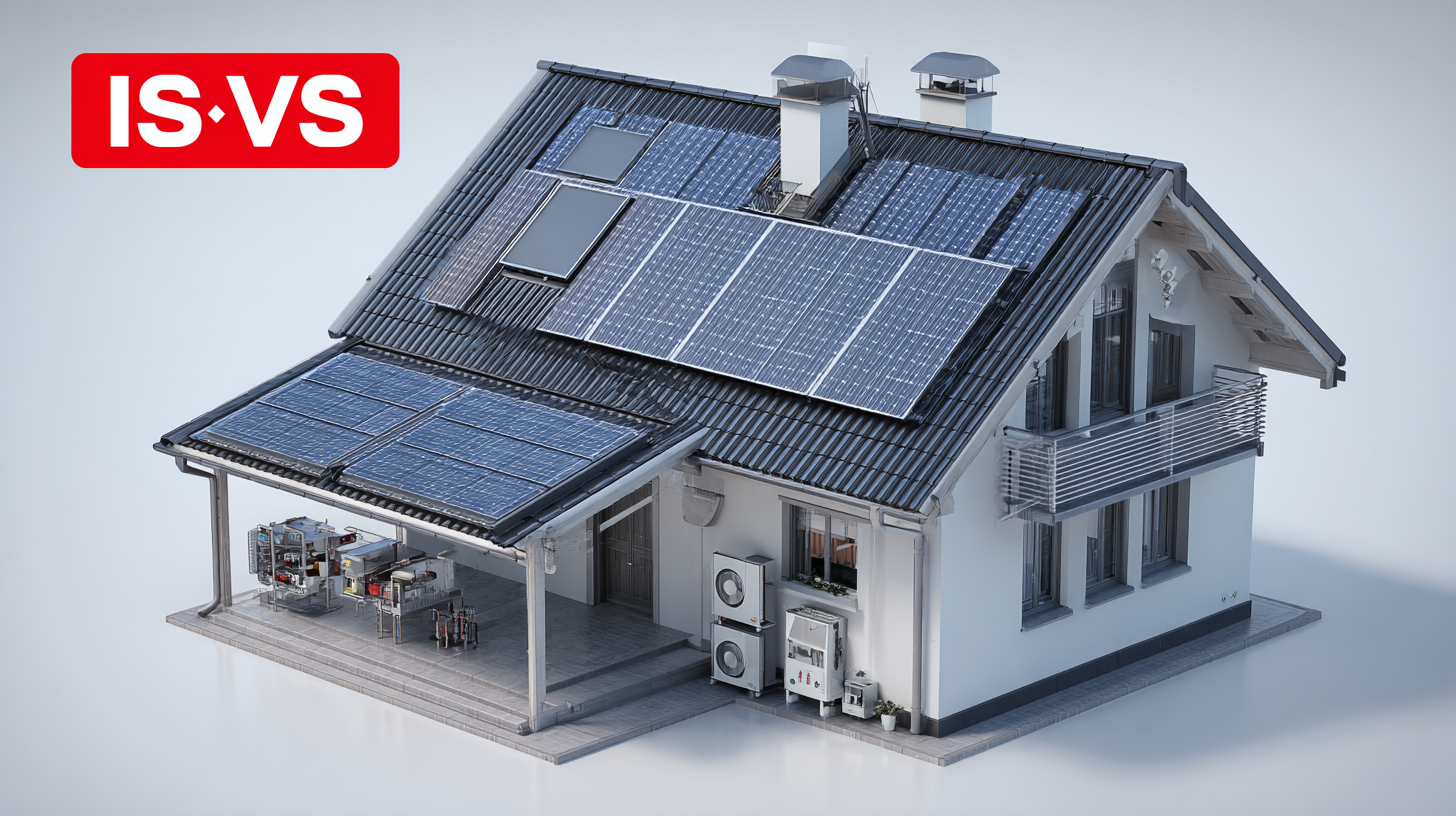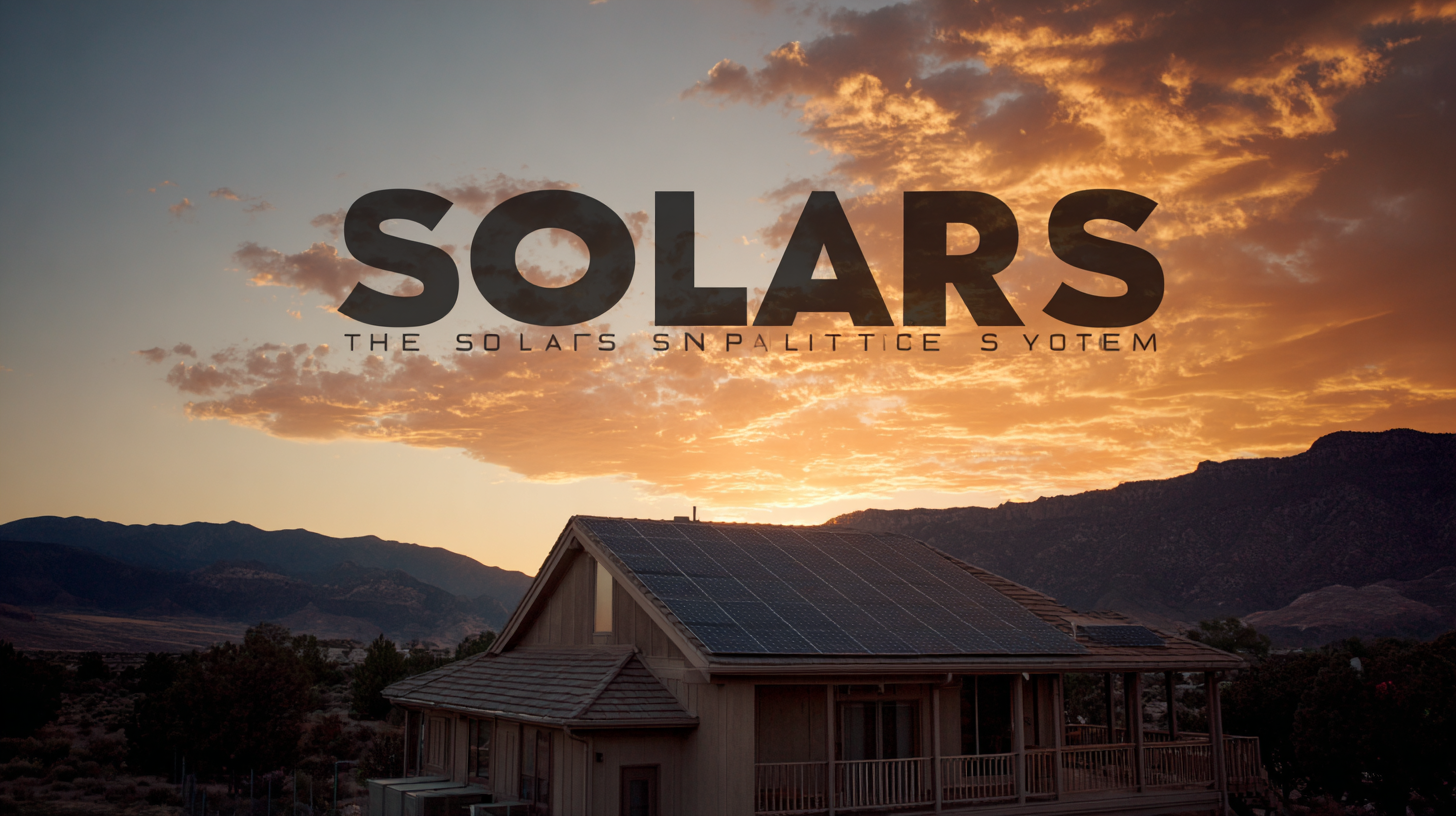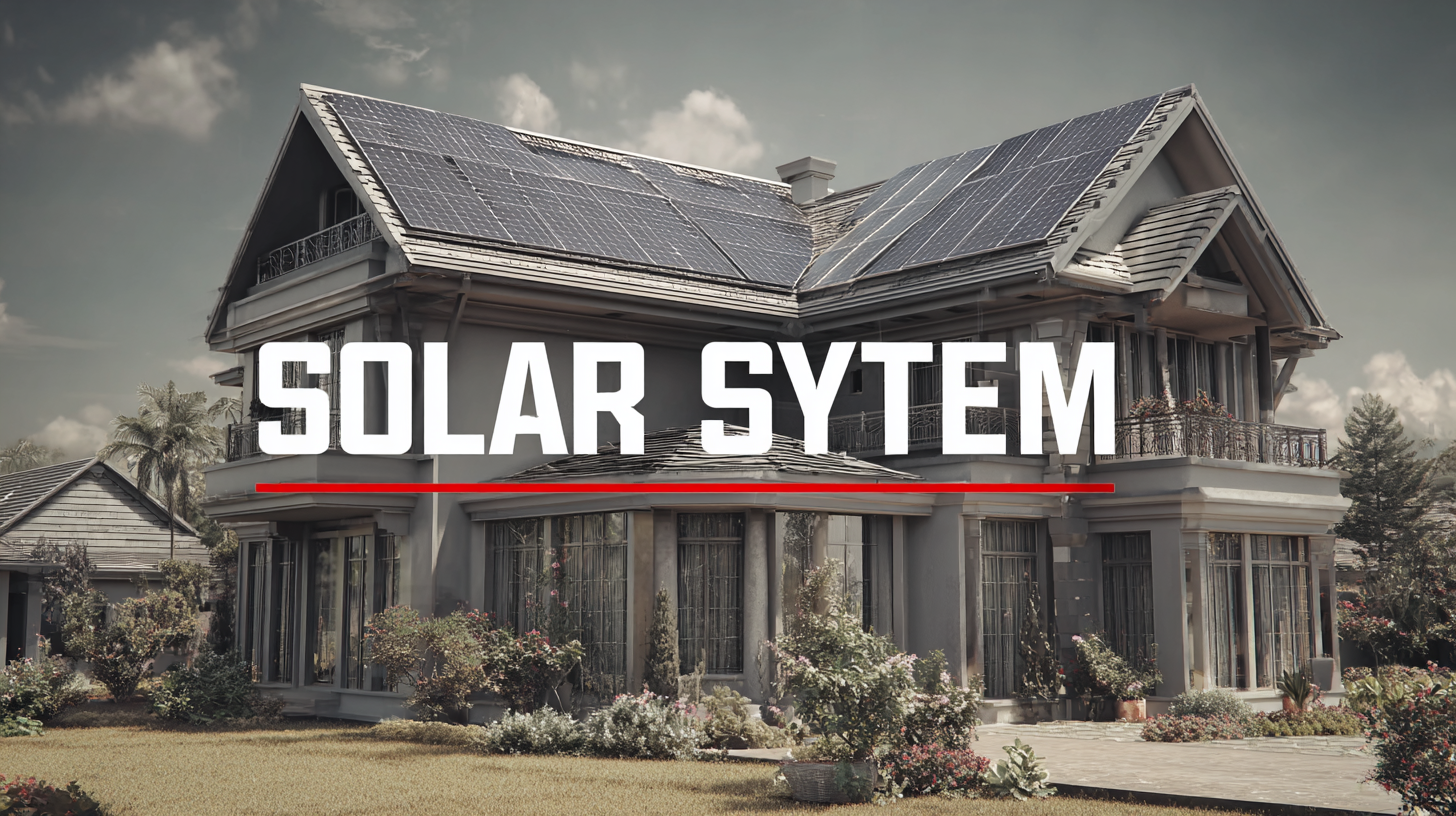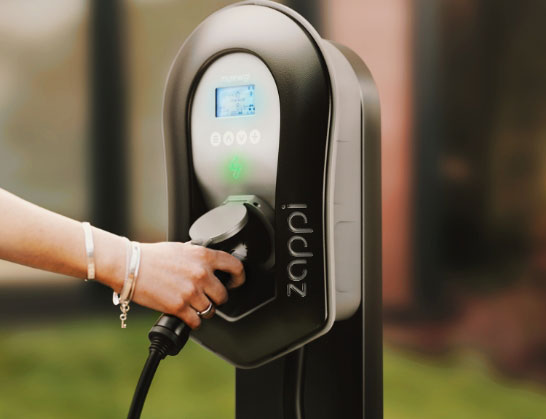Solutions for Choosing the Best Solar Panel System for Your Home Requirements
When it comes to harnessing solar energy for your home, selecting the right Solar Panel System for House is crucial for maximizing efficiency and savings. With a plethora of options available in the market, homeowners are often overwhelmed by the choice of manufacturers and technologies. This blog aims to guide you through the essential factors to consider when choosing a high-quality solar panel system tailored to your specific needs.

From evaluating the reputation of manufacturers to understanding the latest technology advancements, we will provide insights that will empower you to make informed decisions. Whether you’re looking to reduce your carbon footprint or lower your energy bills, learning how to choose the best solar panel system will pave the way to a greener and more sustainable home.
Join us as we explore the best practices for selecting a solar panel system that meets both your environmental and financial goals.
Understanding the Key Benefits of Installing Solar Panel Systems at Home
When considering a solar panel system for your home, understanding the key benefits is crucial for making an informed decision. One significant advantage is the dramatic reduction in energy bills. According to the U.S. Department of Energy, homeowners can save between $10,000 and $30,000 over the lifetime of their solar panel systems, depending on local energy rates and sunlight exposure. This financial incentive not only aids in recouping installation costs but also provides long-term savings that can be redirected to other home improvement projects or investments.
Additionally, installing solar panels can increase your property’s value. A study by the National Renewable Energy Laboratory found that homes with solar energy systems sold for approximately 4.1% more than comparable homes without such systems. This price premium reflects a growing consumer preference for sustainable living options, with many buyers willing to pay extra for properties that feature renewable energy solutions. Beyond financial benefits, solar power enhances energy independence and supports a cleaner environment, making it a worthwhile consideration for homeowners looking to modernize their energy consumption.
Maximizing Energy Savings: How Solar Panels Reduce Your Electricity Bills
Investing in solar panels is a smart move for homeowners looking to reduce their electricity bills significantly. By harnessing the sun's energy, solar panels convert sunlight into electricity, providing a renewable source of power for your home. This not only leads to lower energy bills but also offers long-term savings, especially as electricity rates continue to rise. The amount you save will depend on several factors, including the size of your solar panel system, your energy consumption habits, and the amount of sunlight your home receives throughout the year.
Moreover, the installation of a solar panel system can also increase the value of your home. Potential buyers are increasingly attracted to homes with energy-efficient features, making it a worthwhile investment for the future. Additionally, many regions offer incentives such as tax credits and rebates for solar panel installation, making it even more affordable. By maximizing your energy savings through solar panels, you not only contribute to a more sustainable environment but also enjoy financial benefits that can help fund other home improvements or lifestyle choices.
Environmental Impact: The Role of Solar Energy in Reducing Carbon Footprint
The transition to solar energy is not just a personal choice; it has a profound environmental impact that plays a crucial role in reducing our collective carbon footprint. As the world grapples with the escalating effects of climate change, solar energy emerges as a sustainable alternative to fossil fuels. By harnessing sunlight, we can significantly diminish greenhouse gas emissions, which are primarily responsible for global warming. Each solar panel installed on a home contributes to this shift, converting sunlight into clean energy and curbing dependence on polluting energy sources.
Furthermore, solar energy systems are becoming increasingly efficient and affordable, making them an accessible option for homeowners. The reduced reliance on traditional electricity grids not only helps in cutting down personal energy costs but also alleviates the strain on natural resources. By investing in solar panels, homeowners not only protect their wallets but also commit to a healthier planet, fostering a sustainable future for generations to come. In this context, understanding the environmental benefits of solar energy can empower individuals to make informed choices that resonate far beyond their immediate surroundings.
Impact of Solar Energy on Carbon Footprint Reduction
Increased Home Value: The Financial Advantage of Solar Panel Installation
Installing solar panels not only promotes environmental sustainability but also increases the overall value of your home. Homebuyers today are increasingly looking for energy-efficient solutions that can reduce their long-term utility bills. By equipping your property with a solar panel system, you position it as an attractive investment, appealing to a wider range of potential buyers who prioritize green living.
Additionally, solar panel installations often lead to substantial savings on energy costs, which can be a compelling selling point. Many homeowners see a reduction in their electricity bills soon after installation, and these savings can add up significantly over time. Moreover, systems that generate surplus energy may offer the potential for additional income through net metering or feed-in tariffs. These financial advantages can make your home not only more desirable but also more financially viable, providing a solid return on investment when the time comes to sell.

Choosing the Right Solar Panel Type: Benefits of Monocrystalline vs. Polycrystalline Systems
 When it comes to choosing the right solar panel system for your home, understanding the differences between
monocrystalline and
polycrystalline panels is crucial. Monocrystalline panels, known for their
high efficiency and sleek black appearance, are made from a single crystal structure.
They typically occupy less space due to their superior energy output, making them an excellent choice for homeowners
with limited rooftop space. On the other hand, polycrystalline panels are created from multiple crystal structures,
resulting in a blueish hue and a slightly lower efficiency. However, they are usually more affordable, making them
a popular option for budget-conscious homeowners.
When it comes to choosing the right solar panel system for your home, understanding the differences between
monocrystalline and
polycrystalline panels is crucial. Monocrystalline panels, known for their
high efficiency and sleek black appearance, are made from a single crystal structure.
They typically occupy less space due to their superior energy output, making them an excellent choice for homeowners
with limited rooftop space. On the other hand, polycrystalline panels are created from multiple crystal structures,
resulting in a blueish hue and a slightly lower efficiency. However, they are usually more affordable, making them
a popular option for budget-conscious homeowners.
Tip: When selecting a solar panel type, consider the
available installation space and your energy needs. If you have plenty of roof space and prefer a cost-effective
option, polycrystalline might be the way to go. But if you need higher efficiency in a smaller area, opt for
monocrystalline.
Another factor to consider is the climate in your area. Monocrystalline panels perform better than their counterparts
in low-light conditions, making them ideal for regions with less sunlight. Polycrystalline panels, while slightly
less efficient, have proven reliable in sunny environments.
Tip: Conduct an energy audit for your home to better
understand your consumption patterns. This knowledge will help you choose a system that maximizes energy production
and meets your specific needs.


